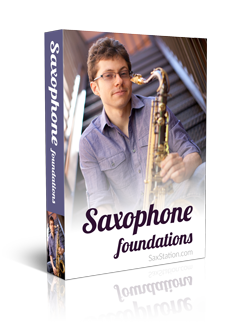
“A beginning chess player faces many of the same problems. Lacking any kind of “chess sense” as players call it, he sits bewildered at the board, moving first a pawn, then a bishop, then–why not?–his queen, all at random, hoping that something good will come of it but knowing that if it does, it will be a mere piece of luck. He has no idea how seasoned players think at the board. Even sitting across from them, he cannot fathom what they’re trying to accomplish with a particular move, what blunders they’re trying to avoid, what alternative game strategies they might be considering. He can certainly appreciate the effects, but the actual thought process is a mystery.”
(pg 4 Trimble, Writing with Style)
When you play the saxophone, it’s very similar. Both are filled with many choices and you interact and play off of another person (or people for music).
Really, most things you ever do can be thought of in the same way, but that’s a different issue.
A complicated solo, like the one played by Sonny Rollins on ‘Dig’ can seem like too much. Too many notes, too fast, etc.
But as you grow as a player, things will make more sense.



Well, I guess you play chess with your brain while you play saxophone with you guts…
Somewhat. I would say instinct is involved with each. For chess, a master ends up not literally thinking about moves nearly as much as a beginner might. Simply because you have encountered so many situations before that you start to recognize and react automatically in some sense.
A master saxophonist does the same thing, he or she has had the experience of so much music that the music just seems to come out and goes with what the other musicians are playing.